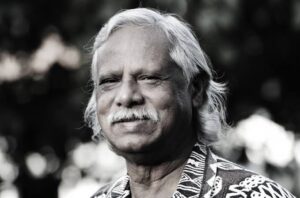I am moved to read in a published feature a real-life story of a Bangalee 17-year-old Tracing Officer of the International Committee of the Red Cross (ICRC) in 1971—a time of profound uncertainty. It is a matter of great pride that this young ICRC officer Monwara Sarker was successful in accomplishing the goal of her noble mission and retiring from her service as the Director of Restoring Family links Department of Bangladesh Red Crescent Society with honor and dignity.As I was going through the article, the uncertain and undecided days of our stay in the then West Pakistan after the liberation of Bangladesh in 1971 flashed across my mind. It was really terrific! In those days, the ICRC rendered valuable services to help getting information pertaining to the whereabouts of our near and dear ones in Bangladesh even in other parts of Pakistan. We also used the printed ICRC red message forms for communication with our relatives in Bangladesh. A message form would usually take one or two months to return with reply (still I have in my collection some red forms with messages). I, my elder brother and some of our friends also worked with the local ICRC as volunteers to ensuring welfare of the stranded Bangladeshi families.
Although some Bangladeshi families had somehow managed to escape from Pakistan via Kabul but the majority of the stranded Bangladeshis were repatriated by the ICRC. Those days were very uncertain particularly for those among us studying at various levels in school, college and university. The services of our parent were terminated as they had opted to serve the East Wing (as the Pakistan govt. defined). All the Bangladeshi family members were under great mental stress. At one stage, the families were shifted to camps in different parts of Pakistan. The Pakistani neighbors and friends were good in many cases but they were afraid to mix with the Bangalees. A hostile attitude was developed among the common Pakistanis. In some cases some vested quarters caused harm to some Bangladeshi families.
Meanwhile the armed forces Bangalee personnels were detained in some captive areas. In some camps they might have treated harshly while in some captivities Bengali army officers were treated well. Recently one of our relatives (Farzana Chachiamma) mentioned in her book “Nostalgic” that they were not blocked to observing Bangladesh’s Independence Day and Pohela Boishakh in the captivity.
In those days, there was no Internet or cellular communication system. For news updates on Bangladesh, we used to largely depend on BBC and Bangladesh Betar (signal of which was strengthened on Shortwave after the independence of Bangladesh). For tracing out the whereabouts of relatives in Bangladesh and vice versa, we greatly depend on that red form of ICRC!
Yours truly,
Professor M Zahidul Haque,
Department of Agricultural Extension & Information System,
Sher-e-Bangla Agricultural University, Dhaka-1207.



